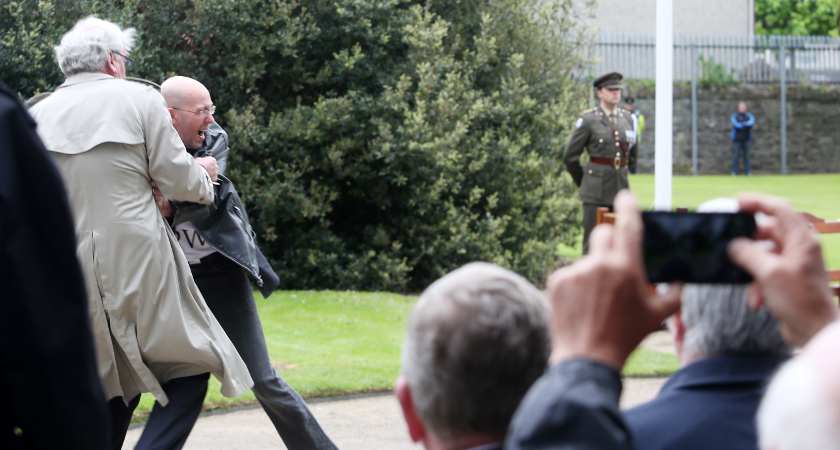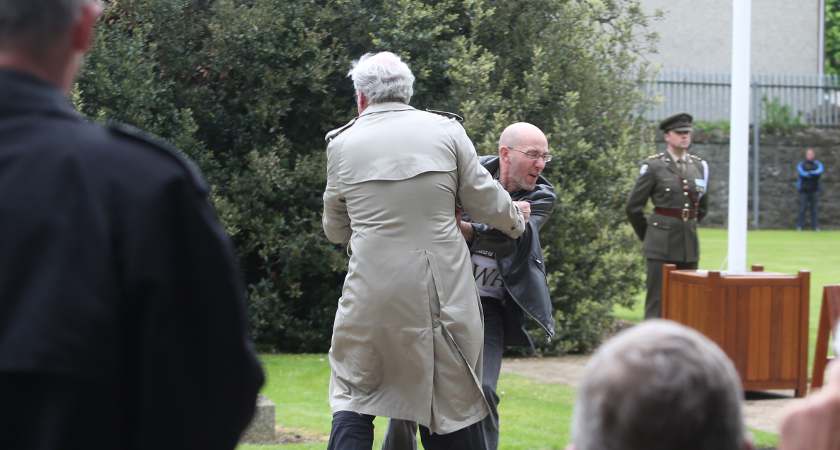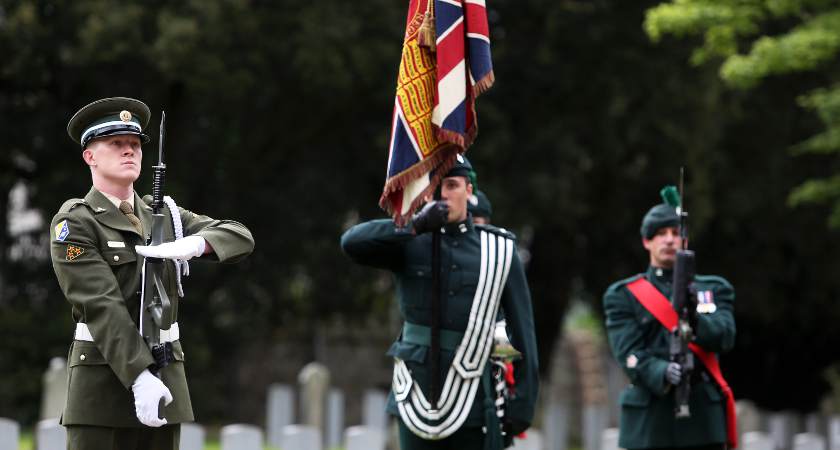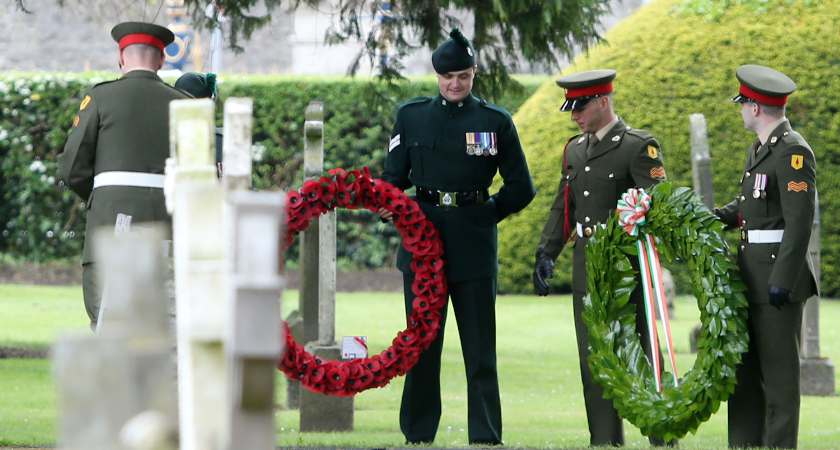MEMBERS of the Irish Defence Forces and the British Armed Forces have taken part in a joint ceremony marking the deaths British soldiers in the 1916 Easter Rising.
The event in Dublin was briefly disrupted by a protester who was tackled by the Canadian Ambassador Kevin Vickers.
Having had had a 29-year-long career with the Royal Canadian Mounted Police, he was hailed as a hero for his actions in stopping a gun attack at the Parliament of Canada in October 2014.
Gardaí confirmed to The Irish Post that a man is currently being questioned by officers at Blanchardstown garda station, where he can be held for up to 24 hours before being released or charged.
The historic event at Dublin’s Grangegorman Military Ceremony included readings of poetry, historical accounts by British soldiers involved in the Rising, and musical elements by military personnel from both countries.
A wreath-laying ceremony was followed by a minute of silent reflection and a pipers lament and the raising of the Irish national flag to full mast.
The ceremony was held to mark the deaths of more than 100 British Army soldiers who died during the Easter Rising.
Ireland’s Minister for Foreign Affairs and Trade, Charlie Flanagan T.D laid a wreath on behalf of the Irish Government.
He was joined by British Ambassador Dominick Chilcott who also laid a wreath on behalf of the British Government.
“Today’s ceremony is about recognising the many different narratives and experiences that made up the events of the Easter Rising," Minister Flanagan said.
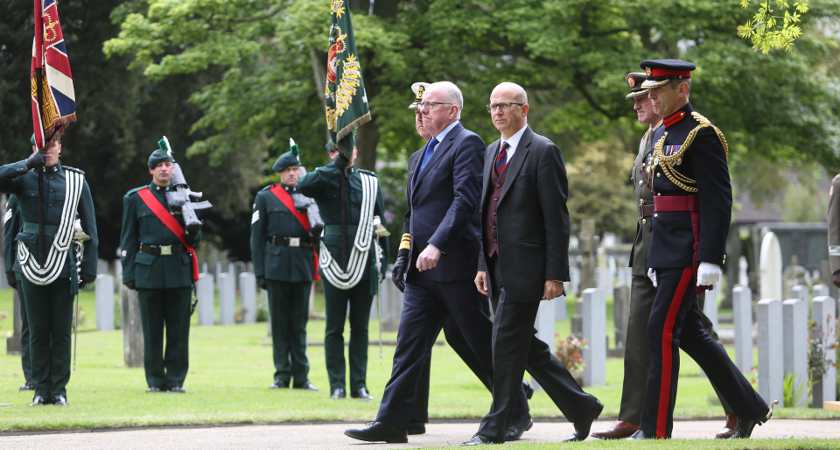 Minister for Foreign Affairs and Trade Charlie Flanagan TD and British Ambassador to Ireland Dominick Chilcott laid a wreath to remember the British soldiers who died during the Easter Rising.
Minister for Foreign Affairs and Trade Charlie Flanagan TD and British Ambassador to Ireland Dominick Chilcott laid a wreath to remember the British soldiers who died during the Easter Rising."As many as 125 soldiers of the British Armed Forces died during the Easter Rising. They came from every province on the island of Ireland, as well as England, Wales, Scotland and further afield.
“Like those that died a hundred years ago, those of us participating in today’s event are a diverse group of individuals, with different backgrounds, beliefs and aspirations.
He added: "Such differences do not divide us and need not hinder us from coming together to reflect upon the moments that have shaped our islands’ history.
"In the century since the events of 1916 we have learned, through painful experience, the importance of mutual respect for the different traditions and multiple narratives across these islands.
“Days like today are an opportunity to broaden our understanding of all the varied influences that contributed to making the Ireland and Britain of today and to demonstrate our respect for all the traditions of these islands.
"Reconciliation and mutual respect are at the heart of how we approach this decade of centenaries and of how we develop the ever stronger relationships that continue to flourish east and west, north and south.”
The event was part of the Ireland 2016 Centenary Programme.

